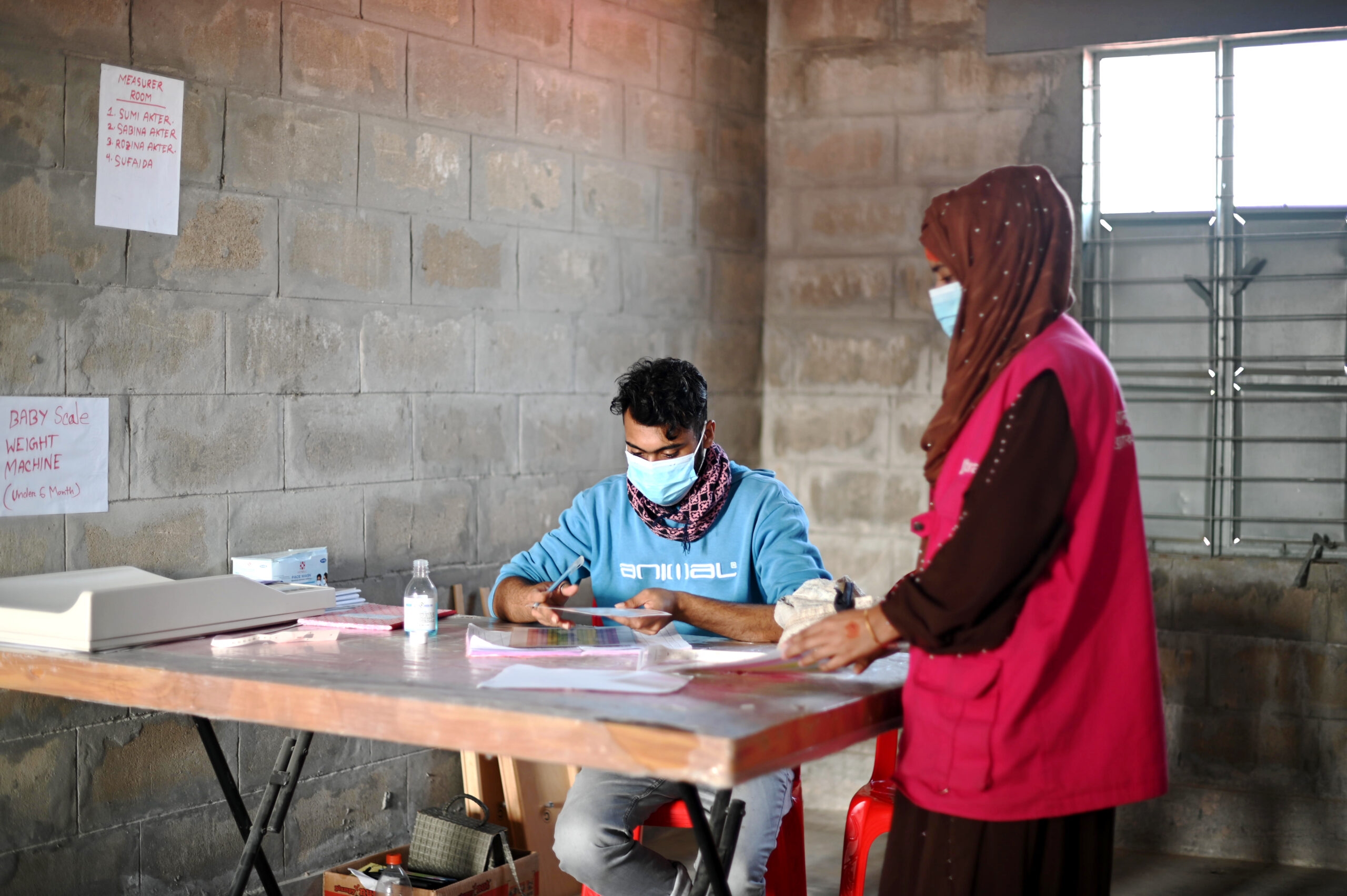By Andrea Pellandra and Sofia Sacks Ferrari, Global Data Service

The health, protection, and socio-economic crises caused by COVID-19 has continued to disproportionally affect the forcibly displaced in 2021, making the need for timely and accurate data to devise appropriate responses as relevant as ever. While huge data gaps still exist, UNHCR and its partner organizations have continued to collect data remotely, through telephone surveys, self-directed surveys, or key informant interviews, many of which have been made available in UNHCR’s Microdata Library (MDL), the institutional secure online data repository providing access to anonymous microdata on forcibly displaced and stateless persons and their host communities.
The year 2021 set a milestone for the Microdata Library, which in its second year of existence saw the number of datasets made publicly available for licensed and open access increase fourfold (from 99 to 399). The series on the socio-economic assessment of the effects of COVID-19 on the displaced populations now comprise 12 countries, including longitudinal studies in Kenya and Lebanon. Modules on the effects of COVID-19 are included in the 27 datasets collected with the High Frequency Survey (HFS), the new regional data collection tool and methodology launched in the Americas, as well as the COVID-19 refugee monitoring in Lebanon, post-distribution monitoring tools in the Asia-Pacific region, market assessments and socioeconomic monitoring in Middle East and Northern Africa , West Africa and East and Horn of Africa regions, and evictions monitoring in the Americas.
The MDL now also features series of cash-based intervention evaluation surveys from 23 countries; Standardized Expanded Nutrition Surveys (SENS) from 8 countries; WASH KAP surveys from 6 countries, and the series of the Vulnerability Assessment of Syrian Refugees in Lebanon (VASYR) from 2016 to 2021. Data on internally displaced people (IDPs) is available for 9 countries. The number of countries for which data is available increased twofold (from 39 to 84), covering all UNHCR regions (see Figure 1).

Figure 1: Number of datasets available by region by year
The past year also marked the strengthening of the MDL’s collaboration with other institutions to facilitate the discovery of data on UNHCR’s persons of concern. In order to do this, UNHCR furthered its partnership with The World Bank’s Microdata Library and OCHA’s HDX to ensure that relevant data and metadata is interoperable and available from either of these catalogues, no matter the platform from which they are accessed. Additionally, the MDL Curation Team worked with several other data repositories and National Statistical Offices, think tanks, and universities to feature data relevant to UNHCR’s persons of concern in the Microdata Library. For example, the Cox’s Bazar Panel Survey conducted by the Innovations for Poverty Action group is available through the MDL, as is the Survey Directed to the Venezuelan Population Residing in Peru, conducted by the National Statistics and Informatics Institute.
The effort to reach out to a wider audience was reflected in the expanding user base and the research which was generated using the data contained in the Microdata Library. The number of users accessing data from the MDL tripled in 2021 in comparison to the previous year, and the number of users requesting data doubled, reaching almost 800 licensed requests. Metadata, reports and questionnaires have been downloaded over 210,000 times throughout the year. In 2021, 20 academic articles covering a wide variety of topics were published using data available in UNHCR’s Microdata Library. These ranged from a simulation of COVID-19 contagiousness in a camp context in Bangladesh’s Cox’s Bazaar; to a study on the likelihood of Syrian refugee returns from Lebanon, the impact of child marriages in the Rohingya community in Bangladesh, and analyses of the risks faced by Venezuelans in border regions of Colombia and the community’s response.
These outcomes are the result of continuous collaborative work with data providers in UNHCR country offices, partners, colleagues in the regional bureaus as well as technical teams and support at the global level. It is hoped that this collaboration will be further strengthened by the issuance of the forthcoming Administrative Instructions for Curation Standards and Procedures for Personal Microdata of Persons of Concern to UNHCR, an internal document which will institutionalize the curation of personal microdata of persons of concern within UNHCR, and establish the required standards, procedures and associated roles and responsibilities within the organization. Additionally, communication and training activities to promote responsible data sharing, and encourage the use of the disseminated data will continue in 2022 to reach even wider audiences.
The Microdata Library is funded with the support of the World Bank-UNHCR Joint Data Center for Forced Displacement. Visit UNHCR’s Microdata Library and stay in touch by subscribing to our newsletter.
Please take 5 minutes to fill out our user survey >>
